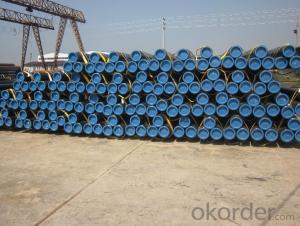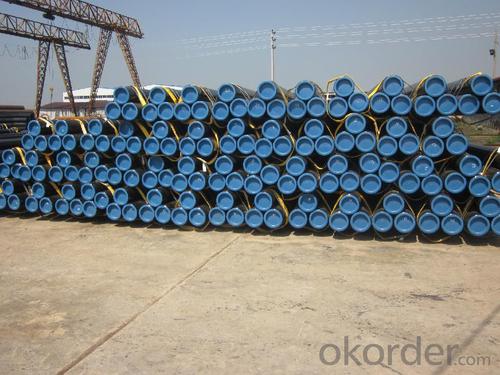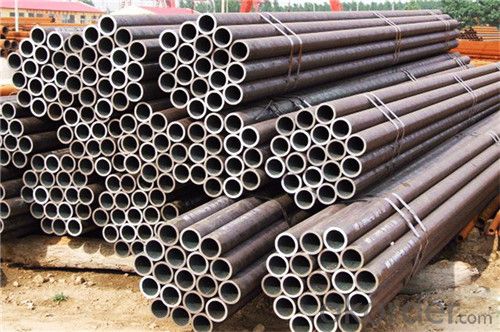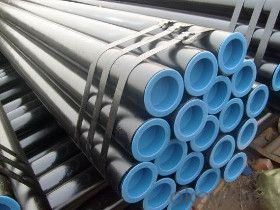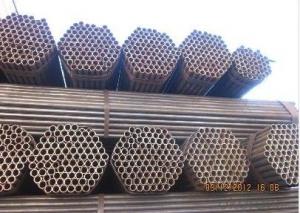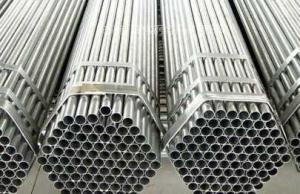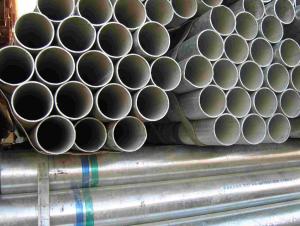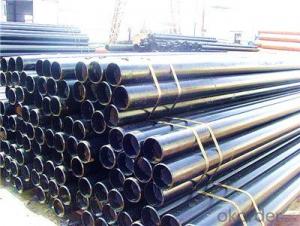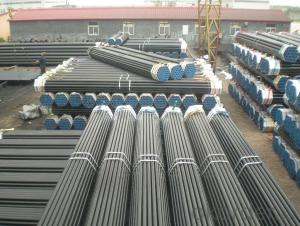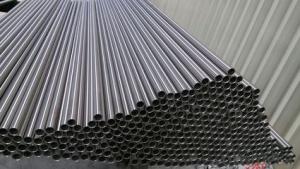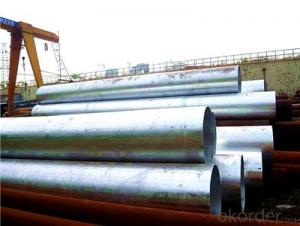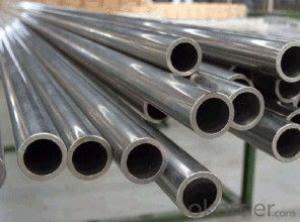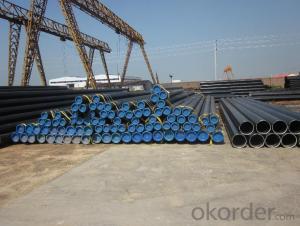Carbon Seamless Steel Tube Of High Quality With Best Price
- Loading Port:
- Tianjin
- Payment Terms:
- TT OR LC
- Min Order Qty:
- 50 m.t.
- Supply Capability:
- 500 m.t./month
OKorder Service Pledge
OKorder Financial Service
You Might Also Like
Product Specifications:
Grade: A213 A335 A199
Certification: Mill test certificate, EN 10204/31B
Dimensions:
Wall Thickness: 0.250" – 4.00" (hot finish), 0.035" – 0.875" (cold drawn)
Outer Diameter: 2" - 30" (hot finish), 0.875" - 18" (cold drawn)
Treatment: Annealed, fully annealed, bright annealed, spheroidize annealed, normalized, stress relieved, cold finished, quenched, tempered
Testing: Chemical component analysis, mechanical properties (ultimate tensile strength, yield strength, elongation), technical properties (flattening, flaring, bending, hardness, impact, etc), exterior size inspection
MOQ: 25 tons
Packaging: Bundle, beveled or plain end, varnish, PVC end caps
Seamless steel pipes, a large number of used pipes conveying fluids, such as transport oil, natural gas, gas, water pipes and some solid materials, and so on. Compared to other steel and solid steel bar, the same torsional strength in bending, lighter, is an economic cross-section steel, widely used in the manufacture of structural parts and mechanical parts, such as drill pipe, automotive drive shafts, bicycle rack and construction using steel scaffolding ring with steel pipe manufacturing parts, can improve material utilization, simplify the manufacturing process, saving material and machining time, such as bearing rings, jack sets, has been widely used to manufacture steel. Steel or a variety of conventional weapons indispensable material, gun barrels to make steel. Steel shapes in different cross-sectional area can be divided into tube and shaped tubes. As in the perimeter of equal conditions, the largest area of a circle with a circular tube can carry more fluid. In addition, the circular cross section to withstand internal or external radial pressure, the force is uniform, so the vast majority of the pipe is pipe.
Packaging & Delivery
| Packaging Detail: | standard packing suitable shipping by sea.fixed length as customers' requirements, or SRL or DRL. Varnish, painting or galvanized, or FBE ,2PE,3PE 3pp coating,bevelled/plain/threaded ends with caps, packing in bundle (OD smaller than 141.3mm) big sizes packing in loose, marking as required. Shipped by sea,by air,by train . or some samples shipped by DHL,EMS,TNT,FEDEX ect. Length shorter than 5.85m should be shipped by 20' container, 5.85-12m shipped by 40' container. |
| Delivery Detail: | 7-35 days after advance payment |
pictures:
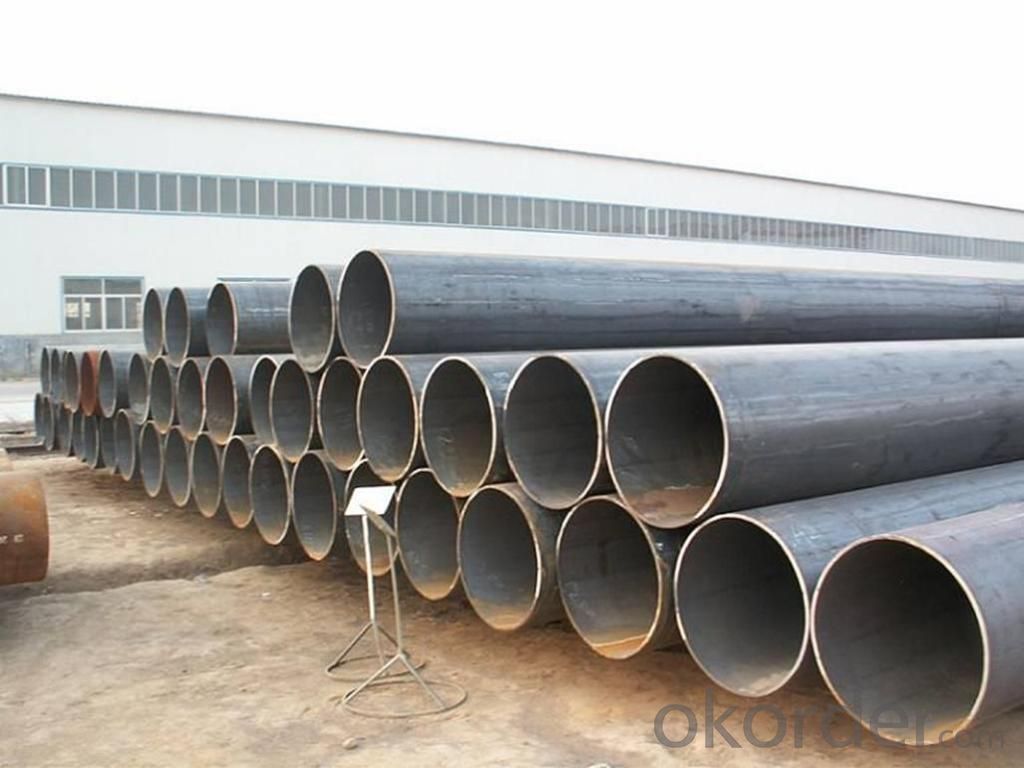
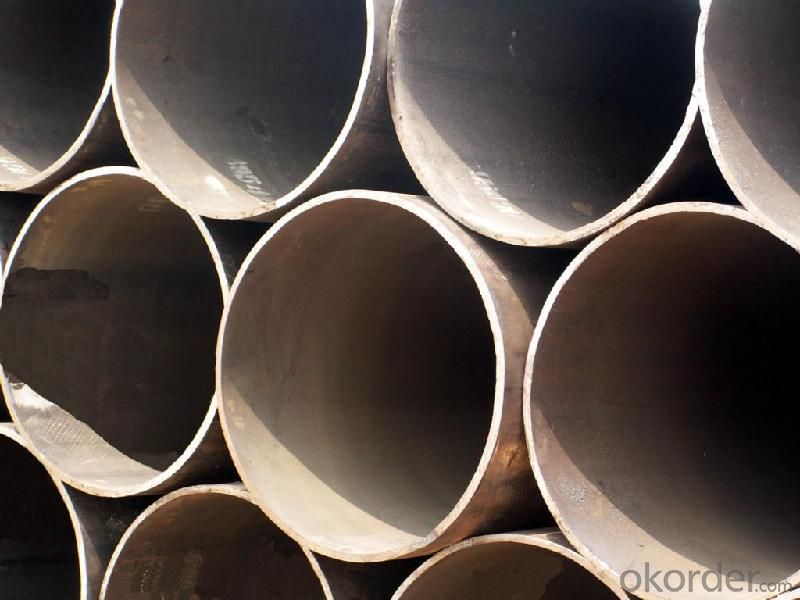
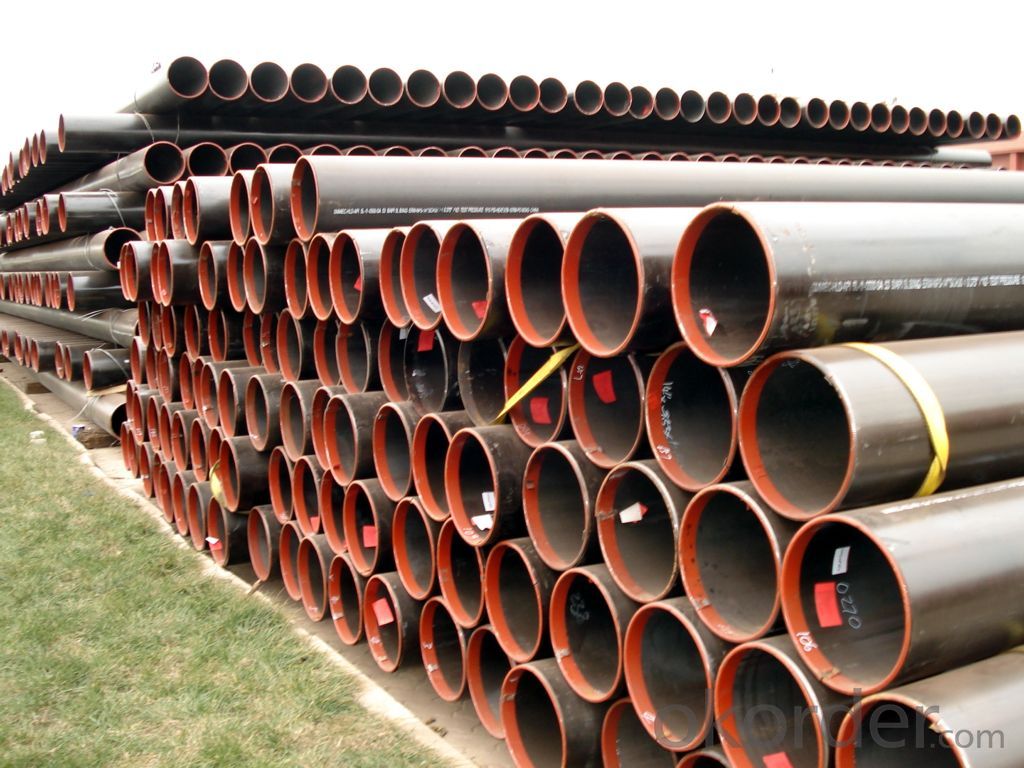
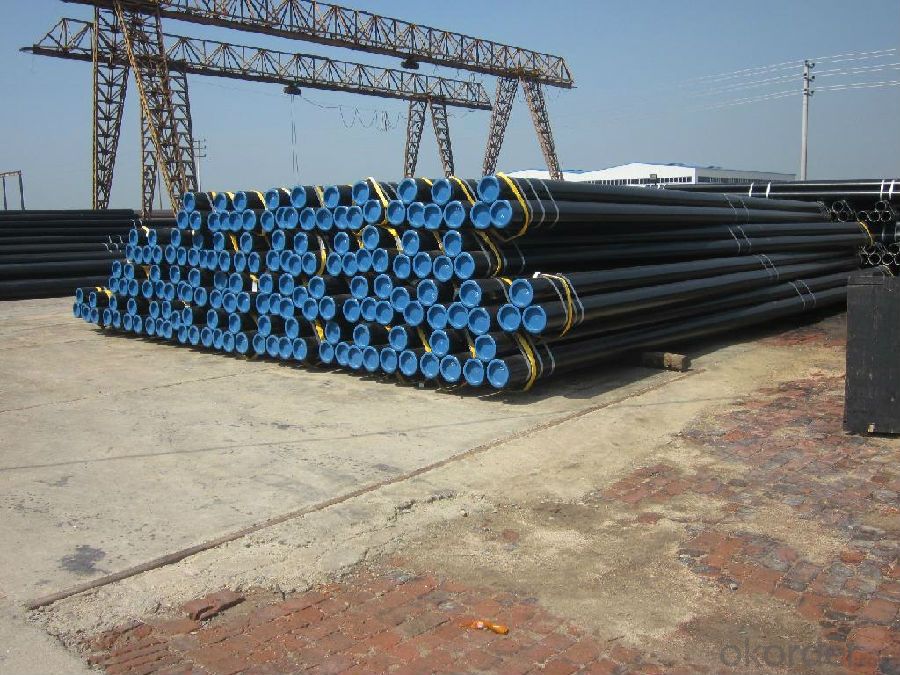
FAQ of Seemless Steel Pipes:
①How is the quality of your products?
Our products are manufactured strictly according to national and internaional standard, and we take a test
on every pipe before delivered out. If you want see our quality certifications and all kinds of testing report, please just ask us for it.
Guaranteed: If products’ quality don’t accord to discription as we give or the promise before you place order, we promise 100% refund.
②How about price?
Yes, we are factory and be able to give you lowest price below market one, and we have a policy that “ for saving time and absolutely honest business attitude, we quote as lowest as possible for any customer, and discount can be given according to quantity”,if you like bargain and factory price is not low enough as you think, just don’t waste your time.Please trust the quotation we would give you, it is professional one.
③Why should you chose us?
Chose happens because of quality, then price, We can give you both.Additionally, we can also offer professional products inquiry, products knowledge train(for agents), smooth goods delivery, exellent customer solution proposals.Our service formula: good quality+good price+good service=customer’s trust
SGS test is available, customer inspection before shipping is welcome, third party inspection is no problem.
Any question, pls feel free to contact us !
- Q: How do steel pipes withstand pressure?
- Steel pipes are able to withstand pressure due to their high strength and durability. The material properties of steel, including its tensile strength and resistance to deformation, allow it to withstand the internal forces caused by pressure without experiencing significant distortion or failure. Additionally, the seamless construction of steel pipes ensures that there are no weak points or joints that could compromise their ability to withstand pressure.
- Q: Can steel pipes be used for transporting sewage?
- Yes, steel pipes can be used for transporting sewage. Steel pipes are commonly used in sewage systems due to their durability, strength, and corrosion resistance, making them suitable for carrying wastewater and sewage over long distances.
- Q: A333gr6 steel pipe and domestic material of the same?
- A333Gr.6 steel is no nickel steel is a kind of fine grain aluminum low temperature toughness of steel, therefore, also called Al killed steel. A333Gr.6 belongs to the United States ANSI and ASTM-SA333 cryogenic steel standards and is used at the lowest impact temperature of -46 degrees celsius. Its temperature, range of use and fracture toughness value are similar to those of domestic 16Mn steel (the minimum usage temperature of 16Mn steel is -40 degrees Celsius).
- Q: Can steel pipes be used for scaffolding?
- Yes, steel pipes can be used for scaffolding. They are commonly used in construction projects as they provide strength, durability, and stability required for supporting workers and materials at elevated heights. Steel pipes are known for their load-bearing capacity and can be easily assembled and disassembled, making them a suitable choice for scaffolding systems.
- Q: Can steel pipes be used for underground geothermal systems?
- Indeed, underground geothermal systems can utilize steel pipes. Given their robustness and longevity, steel pipes are frequently employed in geothermal systems. They can endure the elevated temperatures and pressures inherent in the extraction and distribution of geothermal energy. Moreover, steel pipes exhibit excellent resistance to corrosion, a crucial attribute when contending with the subterranean milieu and the diverse array of minerals and chemicals present in the soil. Furthermore, steel pipes possess versatility, enabling straightforward underground installation and connection, rendering them a fitting selection for geothermal systems.
- Q: What are the common methods for joining steel pipes?
- The common methods for joining steel pipes include welding, threading, and using mechanical connectors such as couplings or flanges.
- Q: Can steel pipes be used for underground compressed air pipelines?
- Indeed, underground compressed air pipelines can utilize steel pipes. The strength and durability of steel pipes make them a popular choice for subterranean pipelines. They possess the capacity to endure high pressure and withstand corrosion and other environmental elements. Moreover, steel pipes are renowned for their extended lifespan, rendering them a dependable option for compressed air pipelines. Nevertheless, it is crucial to guarantee the adequate coating and protection of the steel pipes to avert any potential corrosion concerns. Furthermore, the proper installation and maintenance of these pipelines are vital to ensure their efficiency and safety.
- Q: Can steel pipes be used for underground fire protection systems?
- Yes, steel pipes can be used for underground fire protection systems. Steel pipes are commonly used in these systems due to their durability, strength, and resistance to fire. They can effectively withstand high temperatures and provide reliable and long-lasting protection against fire hazards in underground environments.
- Q: How are steel pipes used in the construction of underground parking garages?
- Steel pipes are commonly used in the construction of underground parking garages for various purposes. They serve as structural supports, providing stability and strength to the overall structure. Steel pipes are also used for drainage systems, allowing for efficient disposal of water and preventing flooding. Additionally, they are utilized for the installation of utilities such as water, gas, and electrical lines, ensuring easy access and maintenance. Overall, steel pipes play a crucial role in the construction of underground parking garages by offering durability, functionality, and reliability.
- Q: What is the lifespan of steel pipes?
- The lifespan of steel pipes can vary depending on various factors such as the quality of the steel used, the environment in which they are installed, and the maintenance and care they receive. However, typically, steel pipes can last for several decades or even up to a century if properly installed and maintained.
Send your message to us
Carbon Seamless Steel Tube Of High Quality With Best Price
- Loading Port:
- Tianjin
- Payment Terms:
- TT OR LC
- Min Order Qty:
- 50 m.t.
- Supply Capability:
- 500 m.t./month
OKorder Service Pledge
OKorder Financial Service
Similar products
Hot products
Hot Searches
Related keywords
